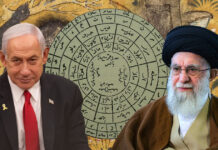By: Hira Bajwa
A 24-year-old woman made a choice that millions take for granted: she fell in love and decided to marry. That choice cost her life.
In early June 2025, the young woman and her 32-year-old husband were executed in broad daylight in Balochistan’s remote Hanna area. Their crime? Marrying across tribal lines without family permission. Their punishment? Death by firing squad, carried out by their own relatives.
A Love Story Turned Nightmare
The young couple believed they were attending a family reconciliation meeting. Instead, they walked into a tribal council that had already condemned them to die.
The chilling video that later went viral shows the woman’s final moments: walking calmly toward her executioners, her voice steady as she speaks her last words in Brahui: “You are only allowed to fire at me, nothing else.”
These weren’t her killer’s words. They were hers; a young woman trying to maintain dignity even as her own family prepared to murder her for choosing love over tradition.
Her husband, standing nearby, watched his wife die before sharing the same fate. Two young lives, extinguished in minutes, their bodies left in the desert as a warning to others who might dare to choose their own destiny.
The Human Cost of “Honour”
Behind the term “honour killing” lies a cruel reality: families murdering their own children for asserting basic human rights. This young woman didn’t commit adultery, theft, or violence. She married someone she loved. In civilised societies, this would be celebrated. In parts of Pakistan, it remains a death sentence.
The video’s circulation sparked nationwide outrage, but for every case that goes viral, countless others remain hidden in remote villages where screams echo unheard and graves remain unmarked. Each represents a dream destroyed, a future stolen, a family torn apart by the very people meant to protect and nurture.
A Nation’s Shame, A Government’s Test
Pakistan’s response has been swift but telling. Chief Minister Sarfraz Bugti ordered immediate arrests, with 11 suspects now in custody. A terrorism case has been filed, not by the victims’ families, who remained silent, but by the state itself.
This speaks volumes about how normalised such violence has become in certain communities.
Political leaders across party lines condemned the killings. “This is gender terrorism,” declared Senator Sherry Rehman. PPP Chairman Bilawal Bhutto Zardari reminded the nation that Islam permits women to choose their partners, a fact conveniently ignored by those who kill in religion’s name.
Beyond Condemnation: The Path to Change
Words of outrage, while necessary, are insufficient. Every time Pakistan allows such murders to occur with impunity, it signals to the world, and its own daughters, that women’s lives matter less than men’s pride.
This isn’t about respecting tradition; it’s about recognising that some traditions deserve to die so that people can live. Real honour lies in protecting the vulnerable, not murdering them. True strength comes from embracing change, not clinging to barbarism.
Pakistan stands at a crossroads. It can continue tolerating pockets where medieval brutality masquerades as justice, or it can finally declare that all Pakistani lives, regardless of gender, location, or family dynamics, have equal value.
Sheetal and Zarak will never see the Pakistan they deserve to live in. But their deaths can still save others, if we finally decide that love should triumph over hate, that choice should defeat compulsion, and that humanity should overcome horror.
The question isn’t whether Pakistan can change; it’s whether Pakistan will choose to.
Note: While some reports have identified the victims by name, authorities have not officially confirmed their identities as investigations continue.



































